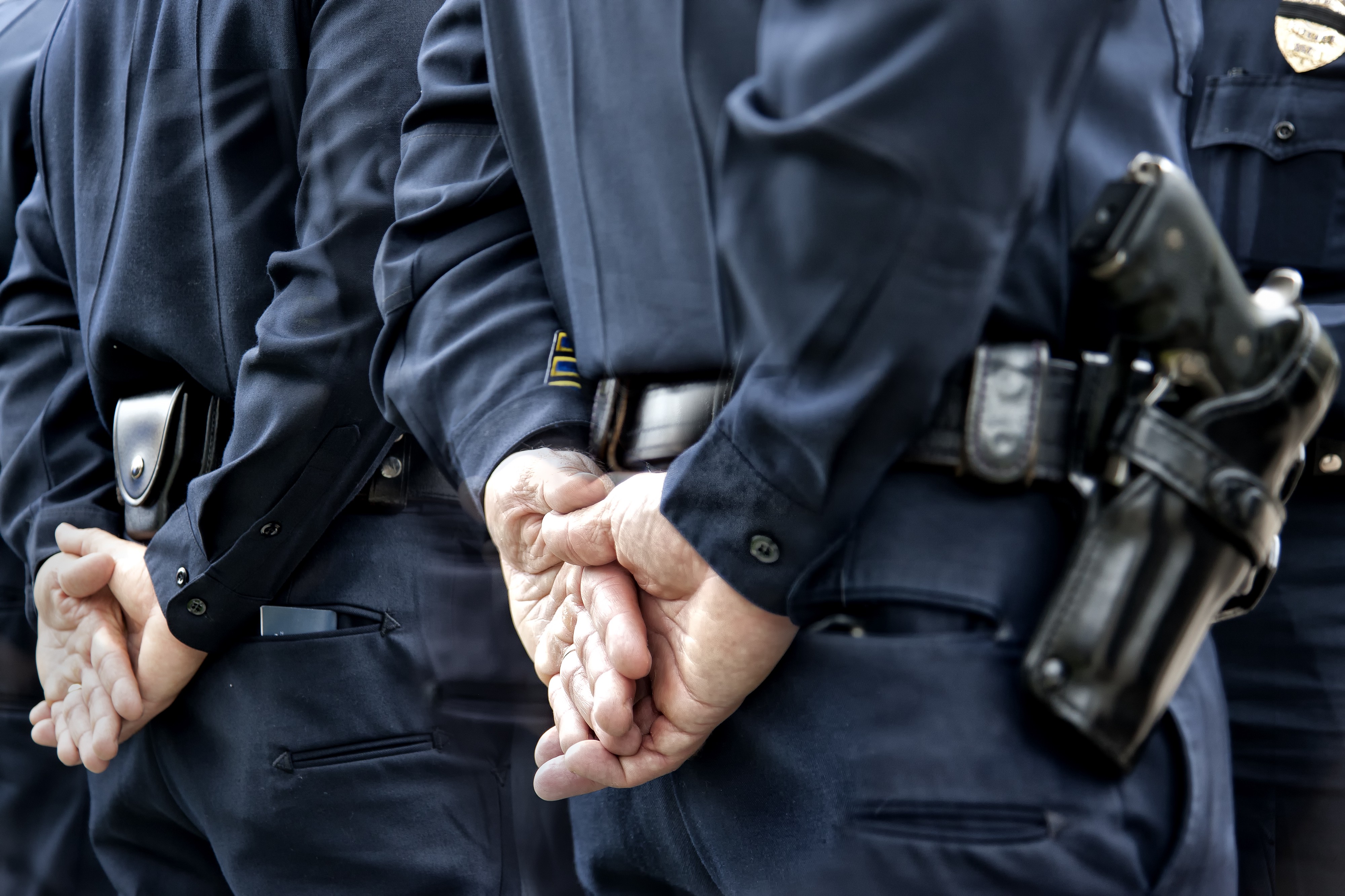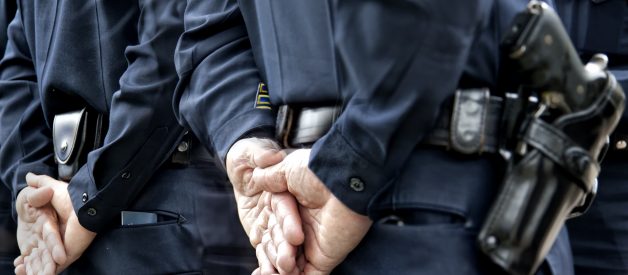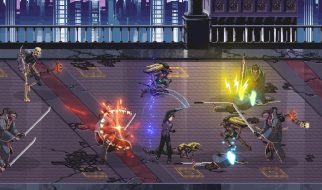Listen to this story
–:–
–:–
Power Trip
The corruption, violence, and petty cruelty on display left me with PTSD
 Credit: Images by Steve Skinner Photography/Moment/Getty
Credit: Images by Steve Skinner Photography/Moment/Getty
 I am frequently asked why I became a cop, but I never seem to have a satisfactory answer. I was an only child in a single-parent home and was relatively quiet and introverted growing up. I wasn?t following in anyone?s footsteps ? there were no other cops in my family. I wasn?t the best student in high school, and even if I had been, I didn?t have the money for college. Being a police officer seemed like a job that paid relatively well, and most departments didn?t require anything more than a GED. After learning that Baltimore was hiring officers and that their process moved fast, I applied in mid-March of 1999 and was hired on June 21, 1999. I resigned in July 2017, a little more than a year after being diagnosed with PTSD and spending 10 days in a mental health facility, the cumulative result of 18 years of experiences.
I am frequently asked why I became a cop, but I never seem to have a satisfactory answer. I was an only child in a single-parent home and was relatively quiet and introverted growing up. I wasn?t following in anyone?s footsteps ? there were no other cops in my family. I wasn?t the best student in high school, and even if I had been, I didn?t have the money for college. Being a police officer seemed like a job that paid relatively well, and most departments didn?t require anything more than a GED. After learning that Baltimore was hiring officers and that their process moved fast, I applied in mid-March of 1999 and was hired on June 21, 1999. I resigned in July 2017, a little more than a year after being diagnosed with PTSD and spending 10 days in a mental health facility, the cumulative result of 18 years of experiences.
Making the transition from civilian to cop was overwhelming. I wasn?t accustomed to exerting any type of authority, and now, after six short months, I was given the power to take away someone?s freedom and the instruments to take someone?s life. At the police academy, we were taught the basics of the job: driving, firearms training, report writing, and self-defense tactics. The academy did not teach us the fundamental difference between power and authority or how to judiciously apply either.
I remember being intimidated when I first hit the street as a patrol officer and began responding to 911 calls. I found myself being expected to intervene in a variety of situations, from neighbors arguing over loud music to domestic assaults. I had to learn on the job to use my power as a police officer to take control, and then, if needed, issue lawful commands or effect an arrest. The challenge was realizing when I was crossing the line and abusing my power by ordering people to do things that weren?t lawful.
I began to feel less like a cop and more like a member of an occupying army.
One summer, I arrested a man on the Fourth of July. I don?t remember why I arrested him, but I can remember taunting him about having his freedom taken away on Independence Day. That was funny to me at the time. In the Special Enforcement Team (SET), a unit I belonged to from 2006 to 2008, we were often encouraged to ?clear corners? ? our supervisors didn?t want groups of people hanging out on the street, especially during summer. I would usually walk up to a group of men on the sidewalk and order them to move. Many times, this wasn?t a lawful order. If they balked at my order or began to argue, I would threaten them with arrest for loitering. Fearing arrest, many people would comply. The other members of my unit used the same tactics, and as a group we pretty much just bullied our designated patrol area.
I began to feel less like a cop and more like a member of an occupying army.
Eventually, this style of policing began to eat away at me. In 2008, after several run-ins with my supervisors over what I felt was unjust and heavy-handed policing, I was kicked out of the SET unit and sent back to patrol. Policing institutions often punish officers who don?t conform.
The abuse of power spread into my private life as well. Prior to becoming a police officer, I had never been pulled over. In fact, I had never interacted with the police at all except once when I worked in retail and had to call them for a shoplifter. As a cop, I was pulled over, off-duty, at least a half-dozen times for speeding, and each time I flashed my badge and identification and was let go without so much as a warning. Cops refer to this as ?professional courtesy.? I would later find out it can be extended to other situations other than traffic stops.
I became an internal affairs detective in 2013 and became privy to other, more nefarious ways cops used and abused their power. It was a common problem for cops to stalk former romantic partners. This was usually male officers keeping track of ex-wives and girlfriends. They used criminal databases to look up tags of cars parked in front of their former lover?s homes or ran a de facto background check on their new partners. One well-documented case is Lieutenant Brian Rice, the supervisor who initiated the foot chase of Freddie Gray that led to Gray?s arrest and, ultimately, his death. Prior to his involvement in the Gray case, Lieutenant Rice had been stalking and threatening his ex-girlfriend for well over a year. The police were called multiple times for his threats of violence ? none of which resulted in his arrest.
After Freddie Gray?s death, the Department of Justice investigated the Baltimore Police Department and released a scathing report detailing the rampant abuses of power and constitutional violations by its officers, including the use of excessive force, illegal stops and searches, and the targeting of African Americans for enforcement. That report and subsequent consent decree didn?t deter an entire unit of cops from curtailing their own criminal behavior.
My head felt like a storage unit crammed full of old damp boxes. I never realized failing to properly processing memories like these could cause PTSD.
The Gun Trace Task Force (GTTF), a group of elite cops tasked with targeting violent offenders and getting guns off the streets of Baltimore, used their power to rob and steal, not just from citizens but also from the police department itself in the form of thousands of dollars in fraudulent overtime. They also resold guns and drugs back onto the streets. In March 2017, seven members of the unit were arrested on federal charges of robbery, theft, and selling drugs. All are now serving federal prison sentences. During the trials of two GTTF detectives, Daniel Hersl and Marcus Taylor, there was testimony that the members of the unit didn?t fear internal affairs and that a deputy commissioner coached them through a fatal shooting to avoid punishment.
In Baltimore, after the death of Detective Sean Suiter, who was scheduled to testify before a grand jury the day after he was killed as part of the federal investigation into the GTTF, the BPD effectively locked down the entire Harlem Park neighborhood where the incident occurred while they conducted their investigation. Officers were told to turn off their body cameras as they conducted searches of citizens in the area and checked identifications of people trying to enter their own neighborhood. This was unchecked power at its worst. The death of Detective Suiter remains unsolved and shrouded in controversy.
In the final years of my career in the BPD, I struggled with trying to process the memories I had collected and the terrible things I saw as a cop. My head felt like a storage unit crammed full of old damp boxes. I never realized failing to properly process memories like these could cause PTSD. When you?re a cop, there isn?t always time to stop and think about something horrible you?ve just witnessed or been through, and with the exception of being involved in a shooting, the department didn?t readily offer up any mental health evaluations to its officers. That is a problem. Mental health is also stigmatized in policing, and officers are reluctant to admit they?re having problems and typically suffer in silence.
All I was doing was helping to feed the machine of institutionalized oppression.
It wasn?t just the blood and guts I was struggling with. I eventually began to realize all the work and energy I was putting into arresting people, usually for petty crimes, was having no positive impact on the city as a whole. And I realized I had lost all empathy for anyone or anything. Crime seemed just as bad as when I first started. Drugs were still being sold. People were still being shot. Murdered. All I was doing was helping to feed the machine of institutionalized oppression. I could arrest drug addicts all day long if I wanted to. Who did that help? What crime did that solve?
I chose to remain silent about the struggles I was having and attempted suicide for the first time in April 2016. I was briefly hospitalized in a local emergency room, where a psychiatrist diagnosed me as having PTSD. I thought it was something only combat veterans could get and never considered it could happen to cops. When I informed the department of my diagnosis, I was told that PTSD wasn?t considered a work-related injury or illness, so any treatment was my responsibility to bear.
After about a year of stops and starts with various therapists and medications, I attempted suicide a second time, in June 2017. That was when I decided to voluntarily check myself into a mental health facility. I figured if I did it on my own, at least I?d have sort of control of the situation. I wound up staying for 10 days. I was evaluated and placed on medications for depression and anxiety. I also underwent several rounds of electroconvulsive therapy.
After I was released, I decided I had to leave not only the BPD but policing altogether, or it would kill me ? if I didn?t kill myself first. I realized that policing and police departments as institutions don?t care about their officers. They care about justifying their own existence and protecting their budgets. I was just a number to them. My badge number, my sequence number, my unit number. Easily replaceable.

